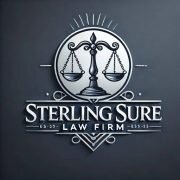Best Motor Vehicle Defect Lawyers in Owerri
Share your needs with us, get contacted by law firms.
Free. Takes 2 min.
List of the best lawyers in Owerri, Nigeria
About Motor Vehicle Defect Law in Owerri, Nigeria
In Owerri, Nigeria, motor vehicle defect laws are in place to protect consumers from damages or injuries that result from manufacturing flaws or violations of safety standards. These defects can range from faulty brakes, steering issues, propulsion problems to defective safety equipment. It's crucial to note that not all vehicle problems are considered legal 'defects.' These are usually categorized into two: safety-related and non-safety defects.
Why You May Need a Lawyer
Getting implicated in a car defect case can be complicated. A lawyer's intervention becomes necessary when you have been injured due to a vehicle defect, a defect has led to significant property damage, or the manufacturer or dealer refuses to honor the warranty and the defect is impacting the performance or value of your vehicle. Legal advice can help you navigate through the consumer rights, safety regulations, and any compensations that may apply to your situation.
Local Laws Overview
The key law in regards to motor vehicle defects in Owerri, Nigeria is the Consumer Protection Council (CPC) Act. This act provides for the right to safety, the right to information, the right to choose, and the right to representations. Any breach of these rights especially in relation to product defectiveness may give rise to legal redress. Under Nigerian law, manufacturers, dealers, and importers are held liable for any product (including vehicles) found to be defective. Also, products considered to be 'unreasonably dangerous' are subject to scrutiny.
Frequently Asked Questions
What can I do if the dealer/manufacturer refuses to fix a defect?
If the dealer or manufacturer refuses to fix a defect, you may want to seek legal assistance to enforce your rights under the law. The Consumer Protection Council (CPC) can also provide help in these situations.
Who pays for the legal fees in a vehicle defect lawsuit?
Generally, the legal fees may initially be borne by the claimant (person filing the lawsuit). However, if your suit is successful, these costs can potentially be recovered from the defendant (manufacturer or dealer).
Can I sue for a car defect that caused an accident but no injury?
You can typically sue for damages related to the defect, such as repair costs or loss of value, even if the defect did not cause physical injury. Legal advice should be sought to understand the particular situation better.
If I buy a used car, can I still sue for defects?
In some cases, yes. If the defect existed before you bought the car, and the seller didn't disclose it, you may have a legitimate cause for a lawsuit. However, legal advice is recommended as used car purchases can have different regulations.
What is considered a 'reasonable' number of repair attempts before I can file a claim?
'Reasonable' is vague and dependent on the specific nature of the defect and its impact on the vehicle's performance. You would typically need to prove that the dealer had numerous opportunities to repair the defect but failed to do so.
Additional Resources
You can check the official website of the Consumer Protection Council (CPC) for information related to consumer rights and protection. The Federal Road Safety Corps (FRSC) also provides safety tips and regulations regarding motor vehicles. Additionally, the Nigerian Automobile Technicians Association (NATA) can provide valuable insights on vehicle repairs and defects.
Next Steps
If you believe you are confronting issues related to vehicle defects and it's impacting your safety or financial situation, consider reaching out to a local lawyer who specializes in the field. Keep track of all important documents, including purchase receipts, warranty details, and repair records. These documents can be instrumental in proving a defect and your attempts at resolution.
Lawzana helps you find the best lawyers and law firms in Owerri through a curated and pre-screened list of qualified legal professionals. Our platform offers rankings and detailed profiles of attorneys and law firms, allowing you to compare based on practice areas, including Motor Vehicle Defect, experience, and client feedback.
Each profile includes a description of the firm's areas of practice, client reviews, team members and partners, year of establishment, spoken languages, office locations, contact information, social media presence, and any published articles or resources. Most firms on our platform speak English and are experienced in both local and international legal matters.
Get a quote from top-rated law firms in Owerri, Nigeria — quickly, securely, and without unnecessary hassle.
Disclaimer:
The information provided on this page is for general informational purposes only and does not constitute legal advice. While we strive to ensure the accuracy and relevance of the content, legal information may change over time, and interpretations of the law can vary. You should always consult with a qualified legal professional for advice specific to your situation.
We disclaim all liability for actions taken or not taken based on the content of this page. If you believe any information is incorrect or outdated, please contact us, and we will review and update it where appropriate.









